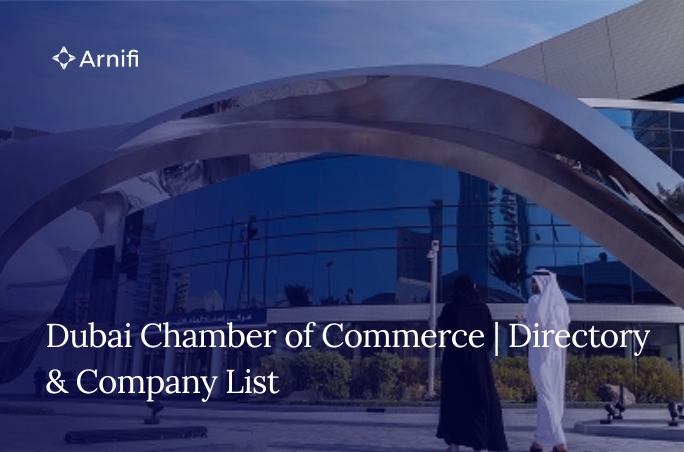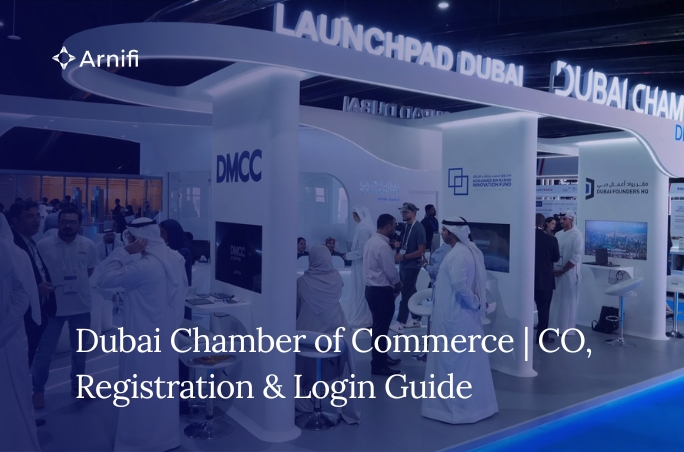Private sector to lead Sharjah’s GDP growth in coming years
by Shethana May 20, 2024  12 MIN READ
12 MIN READ

Why Sharjah?
- Thriving space for entrepreneurs: Sharjah is home to more than 60,000 SMEs and start-ups across its six free zones and 33 industrial zones.
- $37.28BN (GDP 2022)
- Sharjah spends more per person on education and research than the majority of the countries in the area combined—$1.5 billion annually.
- A gateway to UAE and GCC: Manufacturing makes for 17% of the emirate’s GDP, and Sharjah’s easy access to hubs in the UAE, GCC, and beyond by land, sea, and air is one reason for this.
- A well connected Export Hub: The region’s top low-cost airline, Air Arabia, is based at Sharjah Airport, which links the city to the GCC, Europe, Africa, and Asia. The emirate also gains from being close to Dubai International Airport, which is only 28 kilometers distant and serves as a global entry point.
FACTS
- The private sector is set to play a crucial role in driving GDP growth in Sharjah.
- Key industries such as manufacturing, tourism, and logistics are leading the way in private sector growth.
- The government of Sharjah has implemented various policy reforms and incentives to support private sector participation.
- Access to financing remains a challenge for the private sector in Sharjah.
- Emerging sectors such as renewable energy and technology offer opportunities for future growth.
- Shar’s investment climate, strategic location, and economic stability make it an attractive destination for investors.
Introduction
The emirate of Sharjah, one of the seven emirates in the United Arab Emirates (UAE), is witnessing a significant shift in its economic landscape. Historically, the government has been the driving force behind the emirate’s economic growth, with Zayed bin Sultan Al Nahyan, ruler of Abu Dhabi, playing a crucial role in investing oil revenues into healthcare, education, and infrastructure. However, with the country’s increasing focus on diversifying its economy, the private sector is now playing a crucial role in driving GDP growth and creating employment opportunities. This is especially evident in the context of the Gulf Cooperation Council, where the UAE is considered a middle power in the Middle East. The establishment of the UAE in 1971, under the leadership of Sheikh Zayed Bin Sultan Al Nahyan and Sheikh Rashid Bin Saeed Al Maktoum, with the support of the UAE Prime Minister and the creation of the Federal National Council (FNC), is one of the greatest historic achievements that has paved the way for the current economic landscape of Sharjah and the entire UAE, including its strong ties with other countries in the region such as South Africa and Ras Al Khaimah. The UAE also exerts diligent efforts to develop its human resources, providing advanced education and state-of-the-art health services to its people, as well as promoting gender equality and social care for those in need, including adequate medical care for all citizens. In the post-independence period, Sheikh Maktoum bin Rashid Al Maktoum, the prime minister of the UAE and the ruler of Dubai, played a crucial role in the country’s economic growth and development. Sheikh Mohammed bin Zayed Al Nahyan, the crown prince of Abu Dhabi, also played a significant role in the country’s economic development during this period.
Overview of Sharjah’s Economic Landscape
Sharjah, located in the United Arab Emirates, is known for its rich cultural heritage and vibrant economy. The emirate has experienced steady economic growth over the years, with a diverse range of industries contributing to its GDP. Sharjah’s economy is driven by sectors such as manufacturing, tourism, logistics, and real estate, with popular attractions including the Palm Jumeirah and the iconic Burj Khalifa. The emirate’s strategic location in the Gulf of Oman and North Africa, including the Musandam Peninsula, strong infrastructure, and business-friendly environment have attracted both local and international investors, thanks to the leadership of H H Sheikh Mohammed Bin Rashid Al Maktoum and the sons of the late Sheikh Rashid Bin Saeed Al Maktoum. The government of Sharjah has been proactive in implementing policies and initiatives to support economic diversification and promote private sector participation, making it a key player in the economic landscape of the emirate of Dubai, including its maritime borders with Qatar and Iran. Additionally, the desert area of Sharjah includes two important oases with adequate underground water for permanent settlements and cultivation, further contributing to the economic growth and development of the emirate. The emirate is also home to the Louvre Abu Dhabi, a cultural district on Saadiyat Island that showcases the rich history and heritage of the region, making it a major contributor to the cultural landscape of the UAE. With Abu Dhabi accounting for 87 per cent of the UAE’s total area, the private sector is expected to play a leading role in driving Sharjah’s GDP growth in the coming years, with the support of neighboring countries such as Saudi Arabia.
Sharjah makes it simple to establish a business!
Sharjah Mainland
Sharjah Department of Economic Development (SEDD) is the department in charge of licensing and registration of corporate entities in mainland Sharjah. The SEDD’s licensing and registration procedure is streamlined to offer ease of registration based on specific business activities. The UAE Commercial Companies Law (CCL) is the federal law that regulates all entities set up in the UAE mainland and has recently been amended to allow 100% foreign ownership. A company registered on the mainland can conduct business across the whole UAE including with federal and local government bodies.
Free Zones in Sharjah
Six free zones can be found in Sharjah, all of which are well situated in or close to important transportation hubs to meet investor logistical needs. The emirate takes great satisfaction in reducing red tape. Its business-friendly Free Zones, including Jebel Ali, have no corporate tax and no personal income tax. There are no customs charges, import, export, or re-export fees, making them major ports for trade and commerce in Dubai city. Find out which freezone is most appropriate for your business.
Current Economic Indicators and Trends
Despite the challenges posed by the global pandemic, Sharjah’s economy has shown resilience and continues to grow. The emirate has successfully managed the impact of the pandemic through various measures, including fiscal stimulus packages and support for businesses.
Sharjah’s GDP growth has remained steady in recent years, with the private sector playing a crucial role. The emirate has witnessed increased foreign direct investment (FDI) inflows, indicating confidence in its business environment.
The tourism sector has been one of the hardest hit by the pandemic, but with the gradual easing of travel restrictions, there are signs of recovery. Sharjah has implemented strict health and safety measures to ensure the safety of tourists and residents.
The manufacturing sector has shown resilience during the pandemic, with several industries adapting to changing market demands. The logistics sector has also witnessed growth, driven by e-commerce and increased trade activity.
The Role of the Private Sector in Sharjah’s Economy
The private sector plays a crucial role in driving the economy of Sharjah. It contributes significantly to the emirate’s GDP growth, job creation, and economic diversification. The government of Sharjah recognizes the importance of the private sector in achieving sustainable economic development and has implemented various initiatives to support private sector participation. The private sector in Sharjah encompasses a wide range of industries, including manufacturing, tourism, real estate, logistics, and professional services. These industries have contributed to the emirate’s economic growth and attracted both local and international investments.
Key Industries Driving Private Sector Growth
Several key industries are driving private sector growth in Sharjah. The manufacturing sector is one of the main contributors to the emirate’s economy. Sharjah has established industrial zones and free trade zones, attracting local and international investors. The manufacturing industry in Sharjah includes various sub-sectors, such as petrochemicals, textiles, metals, and plastics.
The tourism sector is another important driver of private sector growth in Sharjah. The emirate has invested in developing world-class tourist attractions, hotels, and infrastructure. Sharjah’s rich cultural heritage, historical sites, and festivals have made it a popular destination for tourists.
The real estate sector has also played a significant role in driving private sector growth. Sharjah has witnessed the development of residential and commercial properties, attracting investors and businesses.
The logistics sector has seen rapid growth in Sharjah, thanks to its strategic location and excellent infrastructure. The emirate has established ports, airports, and free trade zones to facilitate trade and attract businesses.
Government Initiatives to Boost Private Sector Participation

The government of Sharjah has implemented various initiatives to support and boost private sector participation in the. These initiatives aim to create a favorable business environment, attract investments, and promote economic diversification. Some of the government initiatives include:
- Policy Reforms and Incentives: The government has implemented policy reforms and incentives to facilitate business setup, streamline regulations, and attract local and international investors.
- Infrastructure and Development Projects: The government has invested in infrastructure and development projects, such as ports, airports, and industrial zones, to support private sector growth.
- Access to Financing: The government has established financial institutions and programs to provide access to financing for small and medium-sized enterprises (SMEs) and startups.
Policy Reforms and Incentives
The government of Sharjah has implemented several policy reforms and incentives to support and promote private sector participation. These measures aim to create a business-friendly environment, attract investments, and stimulate economic growth. Some of the key policy reforms and incentives include:
- Ease of Doing Business: The government has streamlined business registration procedures, reduced bureaucratic processes, and implemented digital solutions to make it easier for businesses to operate in Sharjah.
- Tax and Customs Incentives: Sharjah offers tax incentives, including exemptions and reductions, to attract investors. Customs procedures have been simplified to facilitate trade and reduce barriers for businesses.
- Intellectual Property Protection: The government has strengthened intellectual property laws and regulations to protect the rights of businesses and investors.
- Support for SMEs: The government provides support and incentives specifically targeted at small and medium-sized enterprises (SMEs) to promote their growth and development.
Infrastructure and Development Projects
The government of Sharjah has made significant investments in infrastructure and development projects to support private sector growth and attract investments. These projects aim to enhance the emirate’s connectivity, facilitate trade, and provide a conducive environment for businesses. Here are some key infrastructure and development projects in Sharjah:
- Sharjah Port Expansion: The expansion of Sharjah’s ports, such as Port Khalid and Hamriyah Port, has increased their capacity and improved efficiency in handling cargo. This has boosted trade and attracted businesses to the emirate.
Why Invest in Sharjah?
Sharjah offers several compelling reasons for investors to consider investing in the emirate. Some key reasons to invest in Sharjah include:
- Strategic Location: Sharjah’s strategic location provides businesses with access to regional and international markets.
- Stable and Diversified Economy: Sharjah has a stable and resilient economy, driven by a diverse range of industries.
- Business-friendly Environment: The emirate offers a business-friendly environment, with supportive government policies, streamlined procedures, and a favorable investment climate.
- Strong Infrastructure: Sharjah has well-developed infrastructure, including ports, airports, and industrial zones, that facilitates trade and business operations.
- Skilled Workforce: Sharjah has a skilled and educated workforce, offering a competitive advantage for businesses operating in the emirate.
Navigating the Investment Process

Navigating the investment process in Sharjah requires understanding the business environment and the necessary procedures for setting up and operating a business. Here are some key steps to consider:
- Market Research: Conduct market research to identify business opportunities, target market segments, and competitors in Sharjah.
- Business Setup: Determine the legal structure for your business and follow the necessary procedures for business registration and licensing.
- Government Approvals: Obtain the required approvals from government authorities, such as the Department of Economic Development and relevant regulatory bodies.
- Location and Infrastructure: Identify the suitable location for your business operations, considering factors such as proximity to target markets and access to infrastructure.
- Partnerships and Networking: Build relationships with local partners, suppliers, and customers to facilitate business operations and market penetration.
Conclusion
In conclusion, the private sector is poised to drive significant growth in Sharjah’s economy in the coming years. With a focus on key industries and supported by government initiatives, private enterprises are paving the way for economic prosperity. Despite facing challenges such as regulatory hurdles and access to financing, opportunities in emerging sectors and the impact of digital transformation offer promise for future expansion. Sharjah’s investment climate, coupled with its long-term vision for sustainable growth, makes it an attractive destination for local and international investors alike. The collaborative efforts between the private sector and government initiatives are key to realizing Sharjah’s economic potential and fostering a thriving business environment.
About Arnifi
Arnifi is digital first Corporate service provider helping companies enter the Middle East region, starting with UAE and Saudi Arabia markets. Founded and backed by professionals from Amazon, Souq and other large companies operating in KSA – the team understands what it takes to succeed as a startup in both UAE and Saudi Arabian markets, apart from going through the setup process multiple times. Arnifi will provide a truly digital experience to entry and scale up of companies both UAE and Saudi Arabia. Discover tailored solutions and strategic partnerships that propel your business forward. Check out at – www.Arnifi.com for more details.
Frequently Asked Questions (FAQ)
What makes Sharjah attractive to investors?
Sharjah’s attractiveness to investors lies in its business-friendly environment, economic stability, strategic location, and diverse range of business opportunities. The emirate offers a supportive ecosystem for business growth and development, making it an ideal destination for investors.
How does the government support startups and SMEs?
The government of Sharjah provides support to startups and small and medium-sized enterprises (SMEs) through various initiatives. These include funding programs, business incubators, and mentorship programs, aimed at fostering entrepreneurship and supporting the growth of startups and SMEs.
What are the top sectors for investment in Sharjah?
Sharjah offers investment opportunities in various sectors, including manufacturing, tourism, logistics, real estate, and technology. These sectors have shown significant growth potential and provide opportunities for investors to capitalize on market opportunities and achieve financial success.
READ MORE: Dubai International Chamber Attracts 8 Multinational Companies and 29 SMEs
Top UAE Packages

Related Articles
Top UAE Packages



